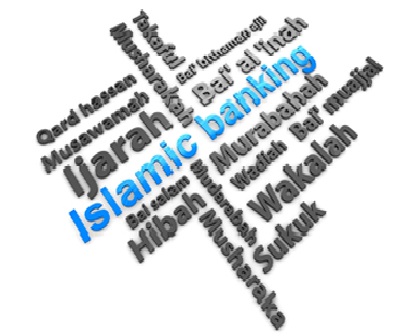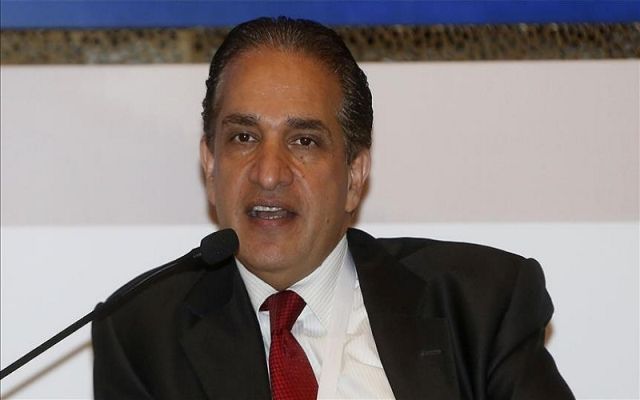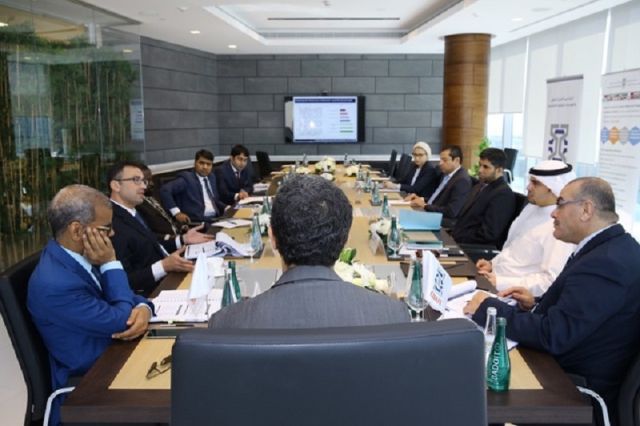
by admin | May 25, 2021 | Corporate, Islamic Banking, Islamic Finance, News

Dr. Nikhat Mushir
Dr. Nikhat Mushir for Maeeshat
Energy sector is comprised of energy producing products, production, distribution, market, producers, distributors and consumers. Energy producing resources are mainly categorised as renewables (hydal, thermal, nuclear, solar, wind etc.) and non-renewables such as oil, gas, coal. The importance of energy resources was well put in the opening remarks of World Future Energy Summit 2012 which was, “Energy is critical to everything we do, from powering our economies to achieving the Millennium Development Goals, from combating climate change to underpinning global security. It is a golden thread connecting economic growth, social equity and preservation of the environment”.
Need of Renewable Energy
According to Organisation for Economic Co-operation and Development’s report, the global population is expected to be more than 9 billion by 2050. This rise in population will create an exceptional rise in demand for energy. The hydrocarbon fuel has already damaged the atmosphere and thus the call to reduce carbon footprint has been made.In World Economic Forum 2013 summit, it was concluded to alleviate risks from future climate change, the ‘green economic growth’ pathmust be formulated. Renewable energy can be successfully and fully adopted only when we have proper and affordable technology to harness full potential of renewable sources of energy.
The trans-national organisations such as World Bank, European Commission, United Nations Environment Programme and others took up green projects very seriously. There has been some advancement towards development of ‘green growth’ modality. In 2008, the International Bank for Reconstruction and Development along with International Finance Corporation launched the ‘Strategic Framework for Development and Climate Change’ programme to integrate the public and private sector for the climate change. In the same year, the World Bank pioneered the ‘Green Bond’ initiative to support sustainable projects (The World Bank, 2014). The biggest achievement of such initiative was increased awareness towards renewable energy resource that led to six times greater investments in renewables in year 2011 than in year 2004.
The GCC and Renewable Energy
The GCC countries known for being oil rich states, with its hydrocarbon resources contributing to around 90 percent of its GDP are equally concerned about climate change as the rest of the world as it is a participant of the United Nations Framework Convention on Climate Change(UNFCCC) and has pledged its commitment towards the initiative. Qatar even hosted the UNFCCC in 2012.
Apart from the challenge of climate change, GCC’s depleting non-renewable energy resources is also compelling it to diversify its energy sector. The rising population leading to current rates of consumption growth, if it continues in the case of Saudi Arabia, the oil exports could be reduced by the end of the decade or sooner than expected. In case of Oman and Bahrain, the two GCC states with the smallest hydrocarbon endowment, are already in depletion led decline.
The share of the installed capacity of renewable energy is only 7 percent of the total in the Gulf (UNDP, 2014). Thus, there is a significant need to develop renewable energy sector and financing channels for the development of green projects. In the GCC, success of the renewable energy sector relies highly on the structural changes and to this end, they have alray taken several steps. One was to liberalise the energy sector and other was policy changes to control the consumption of hydrocarbon energy in order to improve energy security and carbon footprint.
Recently, there has been surge in renewable energy projects in the GCC. Saudi Arabia desires to install as part of its ‘Vision 2030’ program, 9.5 gigawatt of power project based out of renewable energy. In 2011, the Saudi government established the King Abdullah City of Nuclear and Alternative Energy. The purpose of the city is to build up the knowledge base to develop the technique to generate alternative energies. The Kingdom also plans to make good use of wind, nuclear, waste-to-power and geo-thermal sources of renewable energy to produce power. Kuwait Institute for Scientific Research (KISR) has planned to build a wind plant of 15 megawatt and solar plant of 5 to 10 megawatt capacity. In Oman, there are facilities with about 235 kilo-watt of solar energy producing ability. Its purpose is to light the streets, remote watering, television transmission, monitoring earthquakes and heating. There are many pilot projects in renewable sector such as 105 mega-watt solar projects launched in 2010. The wind turbines project of the World Trade Centre in Kingdom of Bahrain is just another example of alternative energies project.
The GCC countries are one of the regions in the world that receives the highest sunlight, which can be utilised to establish an advantageous position in a world of alternate energies. Large number of private investors and government has already taken keen interest as discussed above in the development of green economy. They are also considering their priorities in the field of alternative energy and have conceptualised their plans and many projects have effectively begun like Masdar Solar City project of Abu Dhabi. Masdar city projects involves the features such as the least carbon emitting city in the world, using only solar energy for its power generation and wind energy for cooling with eco-friendly vehicles. A solar and wind field will be set up outside the city along with geo-thermal plants to create the largest hydrogen power station in the world.
Islamic Finance in Renewable Energy
There is a verse in Quran that states –
“Eat and drink, but waste not by excess; Verily He loves not the excessive.” [1]
Quranic teaching discourages extravagance and wastage and encourages one to be frugal and careful while using the bounties on the earth that are natural resources. To preserve the environment and all forms of life on earth is at the core of Islam. Islamic finance is a value based economic system, driven by the principle of public interest. Islamic finance and green energy development, both are for sustainable and balanced development of the whole community.
The Islamic Development Bank, a Jeddah based Islamic finance development bank mandates to use all efforts to use only the cleanest resources with minimum environmental destruction. It also will focus on hydropower generation which has been underutilised in many nations. The unused potential of hydropower for small scale will be explored by copying already existing innovative models. The nuclear power generation will be explored for electricity generation. It will embark on nuclear plan keeping in view all the hazardous nature of nuclear power plant well into consideration. Natural gas and oil transportation and distribution will be of top priority since the natural gas is the cleanest form of hydrocarbon fuel. It can take advantage of its location of highest solar exposure region in the world and lead solar energy development.
IDB is an important investor for renewable energy sector and its chief economist said, “Estimates for the 2030 agenda indicate that we need to move from billions to trillions of dollars of support annually for sustainable development. We will be using Islamic finance to bring new resources to the table”. The IDB pointed out that it might issue green sukuk climate related projects during the United Nations conference in Paris on global warming. This ‘green bonds’ have given people a new way to address and support the environmental issues.
Green Sukuk
Green Sukuk is akin to ‘Green Bond’ which are being utilised for sustainable or green projects. It is basically a form of sukuk which is issued to fund environment friendly projects. (Climate Bonds, 2016). It is suitable in the development of eco-friendly renewable energy projects. Moreover, such products are appealing to large number and varied investor base in the capital market.
Green Sukuk Working Group
In 2012, in order to assist the Green Bond concept, a Green Sukuk Working Group was established by the Clean Energy Business Council (CEBC) of WANA along with the Gulf Bond and Sukuk Association. This group finds green energy projects for the shariah investors.
The CEO of Desert Technologies, a Saudi based renewable developer, said that the Green Sukuk could help launch more projects and products in markets where Islamic finance is strong and about two thirds of new renewables installations are expected to be in emerging markets.
The Dubai Supreme Council of Energy (DSCE) initiated ‘Green Economy for Sustainable Development’. It has joined the World Bank to design financing strategy for its green investment programme whereby it will use green bonds as well as sukuk. The DSCE has a green investment programme in place since 2010 as part of the Dubai Integrated Energy Strategy (DIES) 2030 plan. It has a target of 71 percent of total power output from gas, 12 percent from nuclear energy, 12 percent from clean coal and 5 percent from solar energy. The plan’s second part is to reduce energy demand by 30 percent.
Conclusion
The investment in sustainable infrastructure should be the goal to conserve the environment, and Islamic finance is leading its way towards green projects. These projects are compatible with the spirit of Islamic finance. The GCC countries also seems enthusiastic towards green energy projects where Islamic finance sector could find opportunity.
[1] Al-Qur’an, Chapter 7 verse 31

by admin | May 25, 2021 | Islamic Banking, Islamic Finance, News
 The ceremony of signing a Statement of Intent has been held between the Agency for the Development of the Capital Market of the Republic of Uzbekistan, the United Nations Development Programme (UNDP), and the Islamic Development Bank, establishing cooperation for the introduction of Islamic finance in Uzbekistan. The development of this new type of financing is considered to be an essential alternative financial model for achieving the Sustainable Development Goals in the country, Trend reports citing Timesca.
The ceremony of signing a Statement of Intent has been held between the Agency for the Development of the Capital Market of the Republic of Uzbekistan, the United Nations Development Programme (UNDP), and the Islamic Development Bank, establishing cooperation for the introduction of Islamic finance in Uzbekistan. The development of this new type of financing is considered to be an essential alternative financial model for achieving the Sustainable Development Goals in the country, Trend reports citing Timesca.
Atabek Nazirov, Director of the Agency for the Development of the Capital Market, said: “The Agency is firmly committed to the Sustainable Development Goals agenda, and to developing new financial instruments, particularly the Sukuk bonds which will bridge the gap in achieving national Sustainable Development Goals in Uzbekistan.”
Unlike traditional bank finance which is motivated primarily by profit, Islamic finance focuses on humanistic goals. It provides a “symmetrical approach between cost, personal contribution and reward”. In ordinary banking, preference is given to those activities which bring maximum profit, associated with a high interest rate. Meanwhile Islamic finance is by its nature not focused on maximizing profits.
“Uzbekistan and the countries of the world are going through difficult times, experiencing one of history’s deadliest pandemics. Against this backdrop, the Government of Uzbekistan is skillfully applying immediate support, as well as developing long term strategies to help the country recover from the crisis. This forward-looking approach can be observed in the intentions of the Agency in accelerating the development of new financing instruments,” said Ms. Matilda Dimovska, UNDP Resident Representative in Uzbekistan, during the online signing ceremony.
“The efforts of CMDA to establish an enabling environment for introducing green Sukuk bonds in Uzbekistan are commendable, and UNDP stands ready to support that process.”
The development of Islamic finance in Uzbekistan has the potential to be one of the most important elements in forming a national public-private partnership market, and can be very useful for achieving SDGs and reducing social tension.
The Vice President of the Islamic Development Bank for Country Programs Mr. Mansur Mukhtar said: “Our bank is pleased to support the initiatives of Uzbekistan on the way to expand financial opportunities for the development of the country.”
It is expected that this agreement will become a necessary foundation for developing Uzbekistan’s capital market. The cooperation will help develop a legal and institutional framework for introducing new financial instruments, and for taking the next steps towards launching an Islamic financial product in 2021.

by admin | May 25, 2021 | Islamic Banking, Islamic Finance, Muslim World, News

Group chairman and chief executive officer of Path Solutions, Mohammad Kateeb.
Ankara : Turkey plays a leading role in Islamic finance, said group chairman and chief executive officer of Path Solutions, an Islamic banking software provider.
“I believe that Turkey has a role to play as a leader in Islamic finance and as a hub because it is one of the top three Islamic finance markets in the world,” Mohammad Kateeb told Anadolu Agency (AA).
He spoke on the sidelines of the General Council for Islamic Banks and Financial Institutions (CIBAFI) Global Forum in Istanbul which took place recently.
The two-day forum, which ended on Thursday with Anadolu Agency as its global communication partner, focused on how the industry will fulfill its obligations while remaining competitive and relevant within global financial markets.
Kateeb said they are interested in Turkey because they believe that the Turkish market is “very advanced” in technology.
Also addressing Path Solution’s commitment in contributing to the empowerment of the Islamic finance industry, Kateeb said development of blockchain technology that records and verifies transactions safely based on cryptography — is significant for Islamic finance.
“We believe that the development of blockchain is very important for Islamic finance because blockchain allows you to track value securely and transparently and allows you to also exchange documentations like contracts, in a secure way,” he added.
Kateeb said security and transparency are “very important” for Islamic finance since it is based on assets.
“I believe blockchain will remove the middleman from a lot of transactions,” he added.
—SM/UNA-OIC

by admin | May 25, 2021 | Islamic Finance, News

American University
Washington : American University is now offering a graduate certificate in Islamic finance to better prepare professionals to compete and do business in both emerging and established markets.
The curriculum includes courses that focus on the role of Islamic finance in the global economy and Islamic capital markets. Coursework also focuses on Sukuk (Islamic bonds), which are structured to generate returns without generating interest, which is prohibited in Islam.
For Ghiyath Naqshbandi, an executive in residence at American University’s Kogod School of Business in the US, the graduate certificate in Islamic finance is a dream now realized. Naqshbandi created the certificate as part of his larger vision of advancing Islamic finance. The United States is run by a very different kind of financial model, he said while noting that the American University is one of the only institutions in the country to offer a program.
“I am trying to establish a legacy,” Naqshbandi said. Coursework includes more than book learning. Naqshbandi regularly brings in experts to speak to classes. Speakers who visit and Skype in include CEOs, lawyers and high-profile Islamic finance professionals from Kuwait, and Bahrain, among other countries, News Wise reported.
“There are lots of opportunities for employment,” he continued. “It’s a new field and untapped field in the United States. We’ve been out of the loop for more than 15 years. London, Paris, Singapore, Shanghai and other countries have been taking the lead. It’s about time for us to capture some of the markets.”
Naqshbandi does not want finance professionals to be deterred by the “Islamic” in Islamic finance. Students enrolled in the certificate program come from a variety of backgrounds and religious traditions. Ultimately, he says, the program will help redefine the way professionals do business.
“Islamic finance is for humanity. It means socially responsible business, partnerships between entrepreneurs and financial institutions focusing on real markets. That means productive capacities to produce things that have a real impact on people’s lives.”
American University is a leader in global education, enrolling a diverse student body from throughout the United States and nearly 140 countries. Located in Washington, D.C., the university provides opportunities for academic excellence, public service, and internships in the nation’s capital and around the world.
The Kogod School of Business is the leading destination for the study of business in the Washington, D.C. metro area. The School has been a part of the D.C. business community for 60 years and is accredited by the Association to Advance Collegiate Schools of Business. AACSB accreditation represents the highest standard of achievement for a business school worldwide. Kogod’s Washington, D.C. location serves as a laboratory for learning through work, internships, and other forms of experiential education.
—SM/OIC-UNA

by admin | May 25, 2021 | Muslim World
 Manama : Aligned with its role as advocate of the Islamic Financial Services Industry (IFSI), the General Council for Islamic Banks and Financial Institutions (CIBAFI), the global umbrella of Islamic financial institutions, announced that it has submitted its comments on Tuesday to the Basel Committee on Banking Supervision (BCBS) on the Consultative Document on “Sound Practices: Implications of fintech developments for banks and bank supervisors.”
Manama : Aligned with its role as advocate of the Islamic Financial Services Industry (IFSI), the General Council for Islamic Banks and Financial Institutions (CIBAFI), the global umbrella of Islamic financial institutions, announced that it has submitted its comments on Tuesday to the Basel Committee on Banking Supervision (BCBS) on the Consultative Document on “Sound Practices: Implications of fintech developments for banks and bank supervisors.”
The Consultative Document has been issued on 31st August 2017 and was open for public consultation until 31st October 2017.
CIBAFI thanked the BCBS for giving the opportunity to the Islamic Financial Services Industry to comment on the Consultative Document. CIBAFI has provided collective feedback of its member banks from over 32 jurisdictions, comprising the following key points.
First, the Consultative Document sets out five scenarios for the way the banking industry may change, ranging from one in which existing banks adopt new technology to improve their services (but customer relationships remain essentially unchanged), to one in which banks become essentially irrelevant, as customers interact directly with individual financial services providers. CIBAFI believes that, while major banks in the most developed countries may be able to adapt to most of these scenarios, and will have themselves a role in determining which will occur, this is less obvious for smaller banks in less developed countries. Most Islamic banks are of this kind, and there are indeed challenges in the way they need to adapt their knowledge and resources for such changes. Further support from bank supervisors would be welcome.
Second, the BCBS implicitly recognizes that fintech firms may have a greater impact in some markets than others. The suggestion is that in less developed banking markets, and mainly where financial inclusion is relatively low, new entrants may be able to use technology to reach consumers who have no, or limited, existing banking relationships. However, although many Islamic banks operate in less developed and low financial inclusion markets, for Islamic banking, in particular, the threat of new entrants is smaller due to the Shariah compliance requirements. It is thus an opportunity for Islamic banks to collaborate with fintech firms to enhance financial inclusion.
Third, the CD lays emphasis on the need to maintain Anti-Money Laundering and Countering the Financing of Terrorism (AML/CFT) controls in fintech-enabled transactions, though it recognizes the assistance that some new technologies, including artificial intelligence, may offer.
In conclusion, CIBAFI highlighted that its members have pointed out that more comprehensive researches might be needed to assess the macro level effect of fintech, the impact on the economy, financial stability, and the way the central banks may still influence the economy via the monetary and other policies. There may also be tax issues, including whether tax regimes provide incentives or disincentives for fintech firms. CIBAFI recognizes, therefore, need to highlight the importance of such work to the attention of those who do have competence in these areas.
In addition to policy and regulatory advocacy, CIBAFI continues to support the Islamic Financial Services Industry through various activities and initiatives. These include providing industry stakeholders with a platform to discuss emerging issues, representing the industry at major global financial events, and sharing knowledge through specialized publications and comprehensive training programmes.
CIBAFI is an international organization established in 2001 and Headquartered in the Kingdom of Bahrain. CIBAFI is affiliated with the Organization of Islamic Cooperation (OIC). CIBAFI represents the Islamic financial services industry globally, defending and promoting its role, consolidating co-operation among its members, and with other institutions with similar interests and objectives. With over 120 members from 32 jurisdictions, representing market players, international intergovernmental organizations and professional firms, and industry associations.
—SM/OIC-UNA






